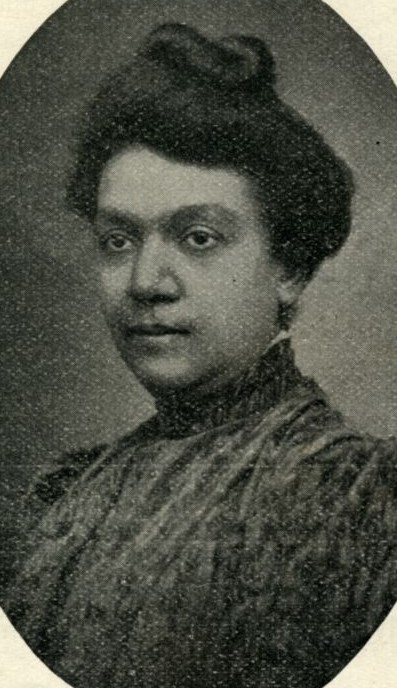
WV University Collection Number: A&M 2621 ID 023821 Family Enslaved by Thomas JeffersonCoralie Franklin Cook, Storer teacher and pioneering civil rights leader was a descendant of Elizabeth Hemmings — matriarch of the Hemmings family. The Hemmings family were both enslaved by and related to Thomas Jefferson, the third President of the United States.First in Her FamilyIn 1880, Coralie Franklin Cook was the first recorded descendant of people enslaved by Jefferson to graduate from a higher learning school. She was part of the first generation of children to graduate from Storer Normal School, noted as a true “child” of Storer College. While attending Storer Normal School, Cook showed talent for the written and oral studies for which she would be known for later.Before even graduating Storer, Cook taught in a small schoolhouse in Knoxville, Maryland, just a few miles outside of Harpers Ferry. Cook later joined Storer as the first female elocution teacher in 1881. Teachers working with newly freed people taught students of all ages and with various skill levels. Most students struggled to learn how to read, write, and do arithmetic—something that enslaved people could not legally do before the Civil War and emancipation. "Much harder to learn one’s letters at thirty than at six"Cook shared her empathy and sadness for her students’ struggles in a summary for the school’s annual report:“[It] is much harder to learn one’s letters at thirty than at six; harder to understand long division at forty than at eight; and harder still to put one’s pride in the pocket, and go day after day into classes with those so much younger. It is at such times as these that the unbidden tears rush into your eyes, as you guide the untutored hand in forming letters, and think, 'O, how willingly would I learn for you, if I could.' But they do learn. I cannot tell you how many came to us last fall unable to write their names, who, when they left in the spring, could write a letter. There is one thing of which I am certain. The problem of Negro education has been solved, and Storer Normal School is helping with the demonstration.” Just a few years later, in 1885, in correspondences to the Missionary Helper, Cook noted her pleasure in “The wonderful improvement in everyday life that Christianity and education are making among the people. The need of schools like ours is greater, if possible than ever before. It belongs, to the graduates of these institutions to go forth waging war against the great mass of illiteracy and the South which threatens to be an evil second only the that of slavery itself.” Grace, Skill and PowerCook’s reputation as a talented speaker and educator at Storer College transcended beyond Harpers Ferry. Fellow civil rights pioneer (and brother-in-law) J.R. Clifford commented on her skills as a “master of this inestimable blessing” and John Wesley Cromwell, an editor for the People’s Advocate in Washington, DC as “an elocutionist of grace, skill and power.”Suffrage and Civil RightsHer schooling and work at Harpers Ferry helped shape her for larger civil rights activism combating the lack of equality for all Black people, and especially for Black women.Her achievements include: editor of the “Women’s Column” for the Pioneer Press, founder and president of the Mount Hope Woman’s Christian Temperance Union at Harpers Ferry, teaching English and elocution at Howard University, part founder of National Association of Colored Women, superintendent of the National Home for Destitute Colored Women and Children amongst others. "On behalf of the thousands who sit in darkness"Cook was the only woman of color invited to speak at Susan B. Anthony’s 80th birthday. She spoke on “behalf of hundreds of colored women who wait and hope with you on the day when the ballot shall be in the hands of every intelligent woman; and also in behalf of the thousands who sit in darkness and whose condition we shall expect those ballots to better, whether they be in the hands of white women or black…”.Enduring love for Storer CollegeThroughout all her endeavors, Storer College would be a place of deep love and appreciation for Cook, “There’s a heart to heart life there [at Storer] that I at least, have never found anywhere else”. |
Last updated: April 3, 2023
